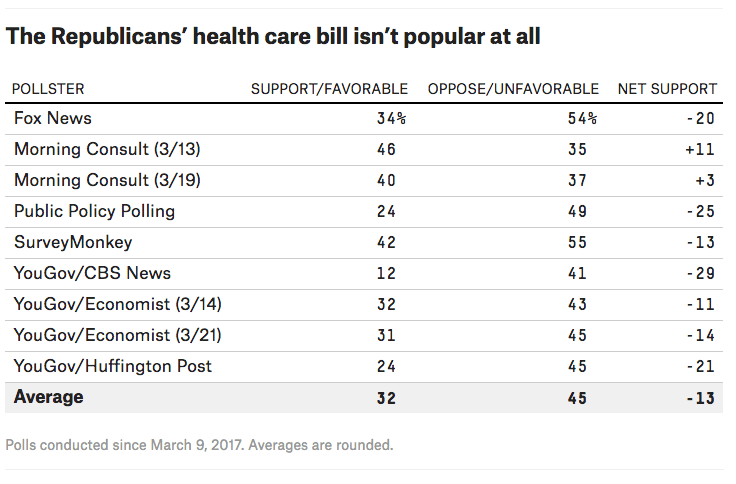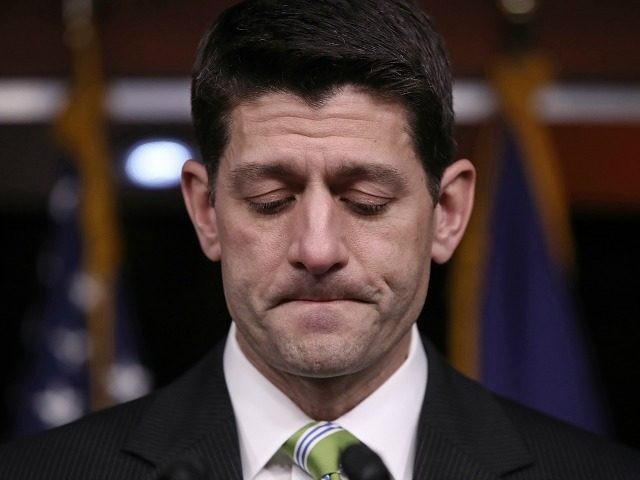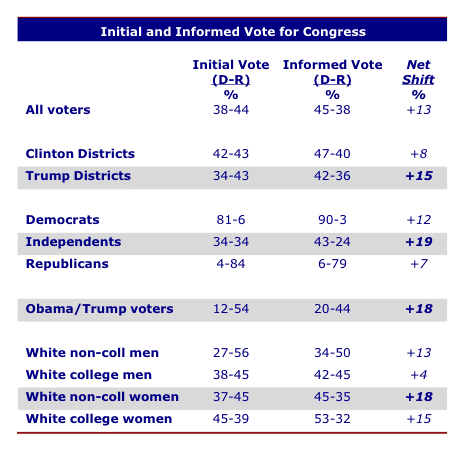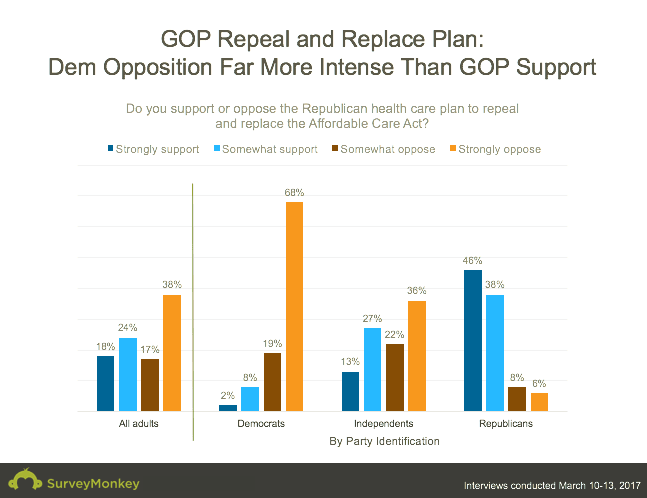GOP legislators avoided a 2018 headache when House Speaker Paul Ryan withdrew his health care plan on March 24 amid a rush of polls showing broad and deep political opposition to the little-understood plan.
The wide gap between the huge levels of disapproval and the tepid approvals shown by the polls more than compensated for each poll’s flaws and weaknesses, and by the uncertainty caused when large percentage of uncommitted provided “don’t know” responses.
Only 17 percent of respondents said they supported the Ryancare plan in a Quinnipiac poll of 1,056 voters from March 16 to March 21. That poll showed lopsided 56 percent opposition, and 26 percent undecided. The Ryancare plan was supported by only 41 percent of declared Republicans. Independents split 14 percent positive, 58 percent negative. Just 17 percent of white college graduates and 22 percent of white non-college graduates backed the plan.
The detailed cross-tabs also showed that 80 percent of swing-voting independents and 54 percent of GOP voters opposed the cuts to Medicaid proposed by the Ryancare plan.
A YouGov poll conducted from March 16 to March 17 showed only 5 percent strong support and 19 percent somewhat support versus 13 percent somewhat opposition, and 32 percent strong opposition, while leaving a huge 31 percent of voters “not sure.” The same poll showed only 13 percent strong support among GOP voters. Among swing-voting independents, 20 percent thought the bill would be good, and 29 percent thought it would be worse than Obamacare, according to the poll of 1,000 citizens.
The same poll showed only 13 percent strong support among GOP voters. Among swing-voting independents, 20 percent thought the bill would be good, and 29 percent thought t would be worse than Obamacare, according to the poll of 1,000 citizens.
A March 12 to March 14 poll by Fox showed only 17 percent strong support for Ryan’s plan, plus 17 percent “somewhat support.” In contrast, strong opposition stood at 40 percent, and “somewhat” opposition was 14 percent. Fox summarized the poll as 34 percent support and 67 percent opposition to Ryan’s plan among the 1,008 registered voters. The detailed cross-tabs showed that the plan was favored by only 33 percent of swing-voting independents, and opposed by 48 percent of those independents.
From March 15 to 19, a poll by the progressive advocacy group Priorities USA “surveyed 1,001 likely 2018 voters spread evenly across 20 battleground congressional districts currently held by Republicans – including 11 carried by Hillary Clinton in November, and nine carried by Donald Trump.” The group then polled to see the reaction to negative messages and concluded that:
we are able to really move the needle in a way that is rarely driven by a single issue, as it is in this case…
The top-testing message against the GOP proposal (as drafted at the time of fielding) is that it allows insurance companies to charge people over age fifty five times more than younger people for their care—with 61% of voters saying this raises “very” big concerns for them. This is the top-testing message among key target groups, garnering “very” big concerns among 75% of those who move on their vote, 66% of independents, 53% of Obama-Trump voters, and 69% of white non-college women.
The Priorities USA poll was conducted by Garin-Hart-Yang Research Group and released March 23.
A SurveyMonkey poll from March 10 to March 13 showed “the Republican replacement bill starts out under water, with far more opposition (55 percent) than support (42 percent), and with twice as many Americans saying they are strongly opposed (38 percent) than strongly supportive (18 percent).” The poll also echoed other poll’s results showing that the plan was tepidly supported but heatedly opposed.
“Across nine surveys, the [American Health Care Act] has garnered an average of just 32 percent in favor compared with 45 percent opposed,” Axios reported. March 23.
 Overall, the polling was so negative that Ryancare was getting a worse reaction than the public’s response to Obamacare in 2009 and Hillary Clinton’s “Hillarycare” plan in 1993, according to Axios. The GOP overhaul “is much more disliked than the ACA [Obamacare] and [President Bill] Clinton’s health care reform bill were when they were first introduced … These numbers look a lot like an
Overall, the polling was so negative that Ryancare was getting a worse reaction than the public’s response to Obamacare in 2009 and Hillary Clinton’s “Hillarycare” plan in 1993, according to Axios. The GOP overhaul “is much more disliked than the ACA [Obamacare] and [President Bill] Clinton’s health care reform bill were when they were first introduced … These numbers look a lot like an
The GOP’s Ryancare, said Axios, “is much more disliked than the ACA [Obamacare] and [President Bill] Clinton’s health care reform bill were when they were first introduced … These numbers look a lot like an NPR poll from late July 2009, in which only 25 percent of Americans were strongly in favor of Obama’s health care bill and 39 percent were strongly against it… Even in early November 1993, a Wirthlin Group survey found that those strongly opposed (27 percent) [to Hillarycare] outnumbered those who were strongly in favor (21 percent).”






COMMENTS
Please let us know if you're having issues with commenting.